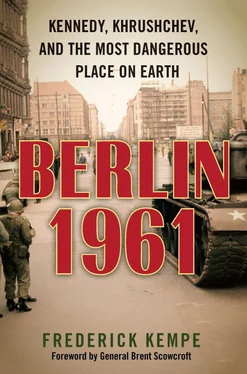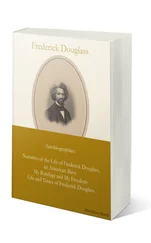Frederick Kempe - Berlin 1961
Здесь есть возможность читать онлайн «Frederick Kempe - Berlin 1961» весь текст электронной книги совершенно бесплатно (целиком полную версию без сокращений). В некоторых случаях можно слушать аудио, скачать через торрент в формате fb2 и присутствует краткое содержание. Город: New York, Год выпуска: 2011, ISBN: 2011, Издательство: Berkley Books, Жанр: История, Политика, на английском языке. Описание произведения, (предисловие) а так же отзывы посетителей доступны на портале библиотеки ЛибКат.
- Название:Berlin 1961
- Автор:
- Издательство:Berkley Books
- Жанр:
- Год:2011
- Город:New York
- ISBN:978-1-101-51502-0
- Рейтинг книги:4 / 5. Голосов: 1
-
Избранное:Добавить в избранное
- Отзывы:
-
Ваша оценка:
Berlin 1961: краткое содержание, описание и аннотация
Предлагаем к чтению аннотацию, описание, краткое содержание или предисловие (зависит от того, что написал сам автор книги «Berlin 1961»). Если вы не нашли необходимую информацию о книге — напишите в комментариях, мы постараемся отыскать её.
In June 1961, Nikita Khrushchev called it “the most dangerous place on earth.” He knew what he was talking about.
Much has been written about the Cuban Missile Crisis a year later, but the Berlin Crisis of 1961 was more decisive in shaping the Cold War-and more perilous. For the first time in history, American and Soviet fighting men and tanks stood arrayed against each other, only yards apart. One mistake, one overzealous commander-and the trip wire would be sprung for a war that would go nuclear in a heartbeat. On one side was a young, untested U.S. president still reeling from the Bay of Pigs disaster. On the other, a Soviet premier hemmed in by the Chinese, the East Germans, and hard-liners in his own government. Neither really understood the other, both tried cynically to manipulate events. And so, week by week, the dangers grew.
Based on a wealth of new documents and interviews, filled with fresh—sometimes startling—insights, written with immediacy and drama,
is a masterly look at key events of the twentieth century, with powerful applications to these early years of the twenty-first. “History at its best.”
— Zbigniew Brzezinski “Gripping, well researched, and thought-provoking, with many lessons for today.”
— Henry Kissinger “Captures the drama [with] the ‘You are there’ storytelling skills of a journalist and the analytical skills of the political scientist.”
— General Brent Scowcroft











